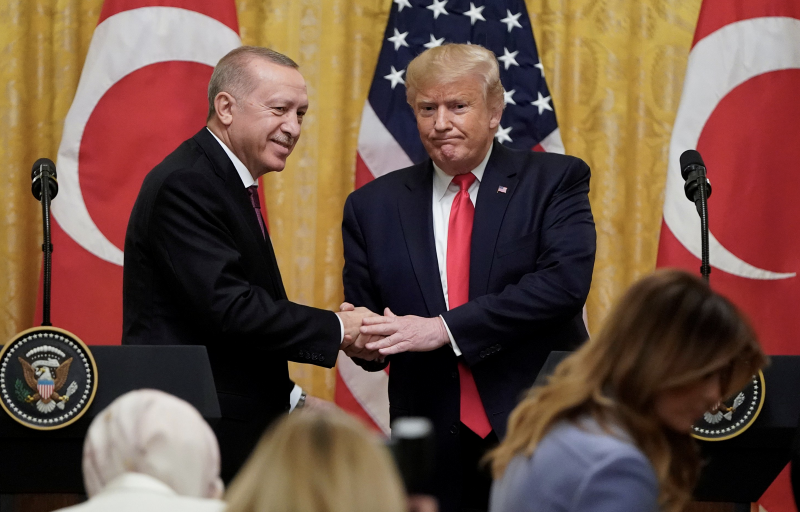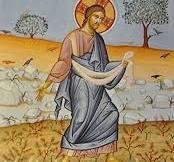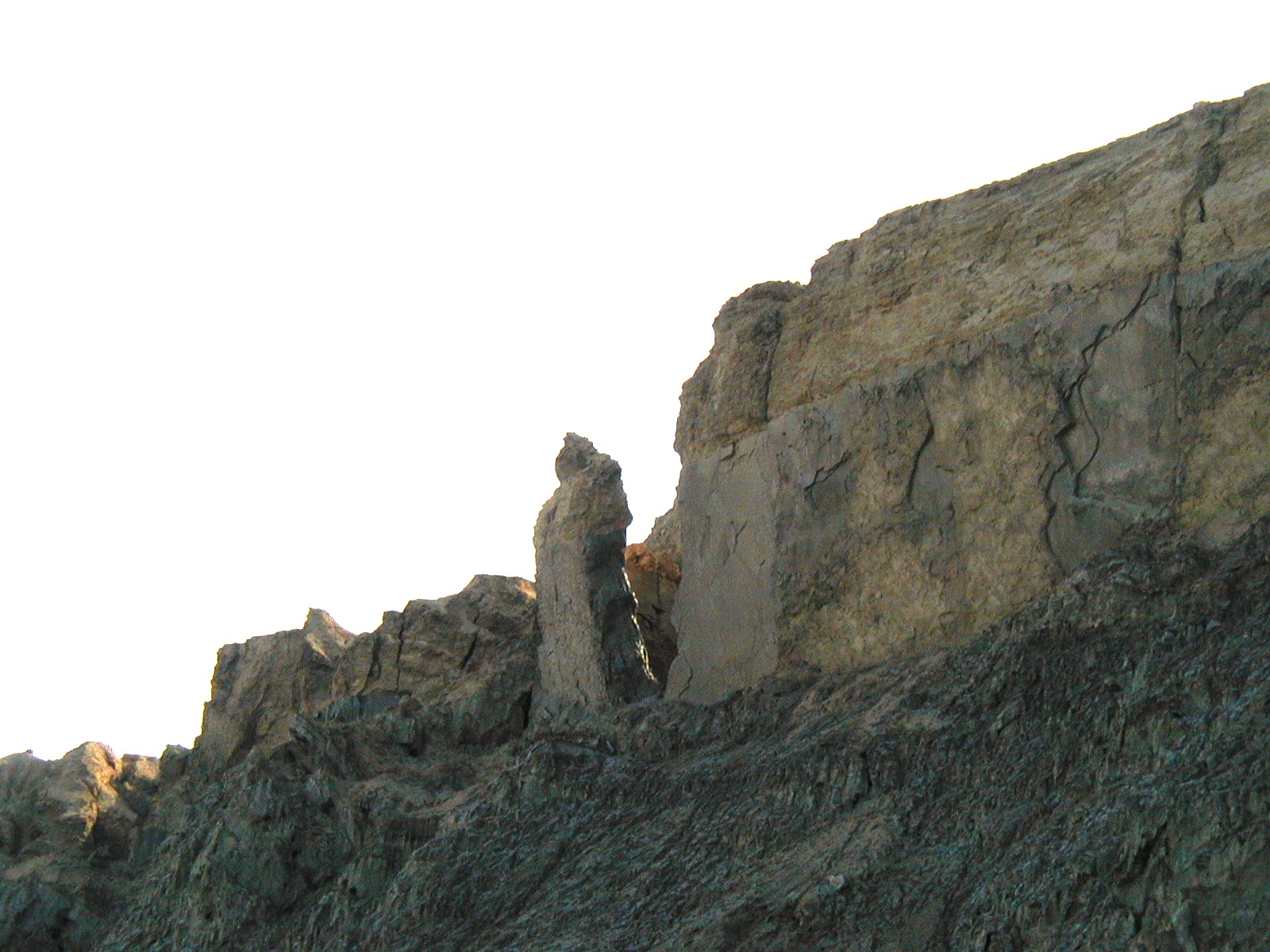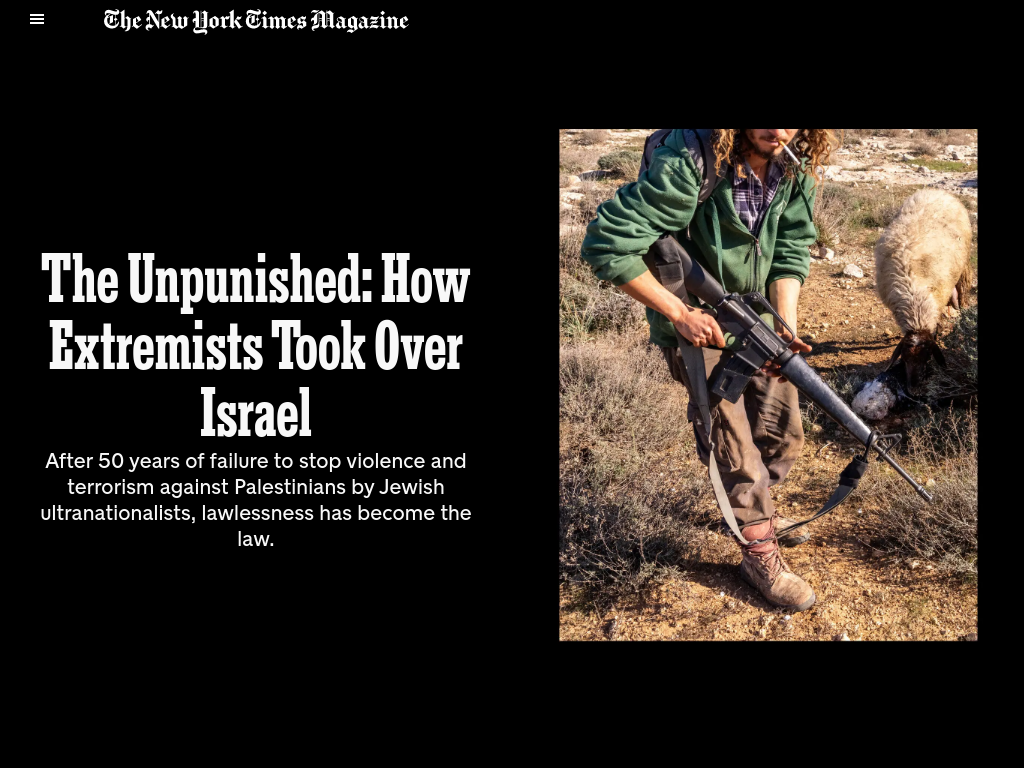Erella Dunayevsky’s stories evoke the dailiness of Palestinians’ lives under occupation. They take place over many years but, as Dunayevsky has written, “the essence of the stories is identical, whether they took place during the nineties of the previous century or are happening right now…”
Terror & Humanism
Rojava is in Danger

With Donald Trump set to return to the White House, the future of Rojava is in serious danger. The last Trump administration green-lit Turkey’s 2019 invasion, resulting in mass displacement, ethnic cleansing of Kurds, and a brutal occupation that continues to this day. Since then, Turkish President Erdogan has threatened to launch another such invasion but repeatedly failed to secure approval from the Biden administration. Reports of Erdogan’s conversation this week with his “friend” Donald Trump suggest that the tides could soon turn in his favor yet again, and another major invasion could be on the horizon.
The Fields of Tanis (a reflection from Haiti)

Dear Family and Friends,
The Haitian people are living through a fourth year of violent torment.
It is the tragic unravelling of the country, with vengeful political discord and the rule of gangs, keeping everything on a crash course.
Having been surrounded by gun battles for most of the past 7 days, and having helped many gunshot, traumatized, robbed, abused and humiliated people over these years, it is more than evident that a bullet easily destroys the whole person: body and mind, heart and soul.
So I had every sympathy for “Keket” yesterday when she, like so many, came to see me for any kind of help.
She was a strong, stocky market woman, in her sixties, until very recently when weakened by a stroke. Since so many clinics and hospitals have closed in the past years, Keket was “lost to follow up.” The whole country is lost to follow up. The whole country is sick in every sense.
Democracy and Feelings: Yoko Tawada brings Paul Celan into the Age of Fiber Optics
Review of Yoko Tawada, Paul Celan and the Trans-Tibetan Angel, translated by Susan Bernofsky (New York: New Directions, 2024).
In retrospect, “bowling alone” ain’t even the worst of it.[1] At least then one retains a modicum of public interaction, an immunity-community[2] formed through the public choreography of shared shoes, balls, lanes. The AppStore at this moment boasts several games flouting “Bowling” and “3D” in their title, a rather perverse inversion of the textures of reality and its flattening by the culture of the screen. The increasing digitization of our live has ravaged social capital and concentrated private capital at a scale far exceeding what even Robert Putnam had in mind. We are becoming increasingly aware of just how devastatingly effective the pandemic of social loneliness—precipitated to hitherto unknown extremes by the COVID-era lockdowns—is for fostering political polarization and right-wing extremism.[3] During the COVID-era, our societies insisted that we remain isolated from one virus, even if that meant exposing us to the ills of whatever goes viral. Four years later, we’re still paying the price for pandemic populism.
In March 2021, I learned the lesson the hard way. It was the centenary of Paul Celan’s birth, and Pierre Joris—gifted poet and translator—was set to speak on his recently completed masterwork, a weighty two-volume translation of Celan’s collected poetry, replete with commentary. Being the dark days of the yet unrelenting pandemic, the talk was naturally on Zoom. Celan’s face loomed on the shared Powerpoint as I introduced Joris. No sooner had he thanked the organizers than it began: the n-word scrawled across the screen; a shrill cartoonish scream invading the speakers; rancid GIFS with gobs of semen extruded on co-eds’ expectant faces; and then, there it was: line by line, the swastika drawn in red ink over Celan’s face. It was thus that I—along with Joris, the other discussants, and the 50 some-odd people present for the talk—were made privy to the phenomenon known as Zoombombing.
Heart of Mine (An Introduction to Erella Dunayevsky’s “Standing Voiceless and other Stories of Resilience”)
Before you, reader, are words of pain. Powerful words. Stories of connection.
Beloved Erella, my oldest and dearest friend, manages in these pages to meet people beyond boundaries, to create connections in places of deliberate separation and to hold out a compassionate hand beyond the limitations of the regime.
Occupation and Resilience
Erella Dunayevsky’s stories bring home what Daniela Kitain terms (above) “the daily reality of Palestinians’ lives under occupation.” What follows is Dunayevsky’s own letter to her readers and two of her urgent yet timeless stories. First of the Month will post more of Dunayevsky’s dispatches in upcoming months.
……….
Dear Reader,
The stories before you take place over many years.
Figures and places vary, but the essence of the stories is identical, whether they took place during the nineties of the previous century or are taking place right now.
The Hebrew language only has four tenses: past, present, future and imperative. I actually need more tenses, as there are in English for example – past continuous and present continuous – so that you, the reader, will correctly interpret the stories before you. They constitute one story about ongoing occupation. A glimpse into the souls who constantly experience it. Something that began to take place once and continues to take place into time unknown.
Her Back Pages
The back cover copy (translated into English by Noelle Canin and Erella Dunayevsky) from Dunayevsky’s Standing Voiceless and other Stories of Resilience.
“We parted. Jaber accompanied us. As we picked our way through the piles of earth resulting from the demolition on the mountainside, on our way to our car we’d parked on the main dirt road, Jabar suddenly stopped, bent down and pointed to the tiniest green plant forging its way through the collapse of stones and earth, saying: ‘This is a Za’atar sprout, it’s determined to live.’”
The collection of sketches in this book describe a journey of long-standing, intimate encounters with people who live under the unbearable reality of ongoing occupation.
Discussing the War

Photo By Ezra Gut
Sometimes I go down to Sodom
to talk to Lot’s Wife
where she looks out at the Dead Sea
Drowning in War
Hold fast to the garden,
the little blue shine of a bird.
Its long, curved beak probes for nectar
in the flowering bush next to my kitchen.
Make this bird as necessary as knowing
what the government does in my name.
Hitler’s Loathsome Paladins
Some readers might immediately recognize the name and distinction of Richard Evans, now Sir Richard Evans, the author of the study Hitler’s People.[1] Evans, the retired Regius Professor of History at Cambridge, was the scholarly companion-in-arms to Deborah Lipstadt when she was accused of libel by the crypto-Nazi provocateur David Irving. Even under the painful constraints of British libel law, requiring the alleged libeler (Lipstadt) to prove that she was right in having debased the libeled party, Lipstadt would win the case, thanks to Evans on her side. Irving had sought to enrich himself at Lipstadt’s and Penguin Books’ expense for falsely terming him a “Holocaust-denier” and “an ardent follower of Adolf Hitler.” Evans proved her correct.
In Hitler’s People, Evans makes a new departure from his previous achievement as a political and social historian of Nazi Germany. Here, he considers the character of the perpetrator. Who are these individuals who–along with Hitler, whom they worshipped—conspired to commit these monumental crimes against humanity, and quite particularly against the Jews? Is there a “new acquist/of true experience” to be had in examining the brief lives of the best-known criminals of the Nazi Reich?[2]—an experience, which Evans hopes, will equip us to better deal with the likes of a Trump and an Orbán (whom we’ve recently met on these pages as members of Autocracy, Inc., the worldwide collective of autocrats)? The jury is out.
Rushdie’s Knife with Occam’s Razor
Salman Rushdie has written an eloquent memoir, a meditation on his near murder by an assassin’s knife, called, simply, Knife. On seeing this book, I immediately recalled another book title, a German counterthrust to Adorno’s 1951-dictum, “Nach Auschwitz ein Gedicht zu schreiben, ist barbarisch” (After Auschwitz, to write a poem is barbaric). The title of this resistant text, which appeared in 1955, is Mein Gedicht ist mein Messer: Lyriker zu ihren Gedichten (My Poem is My Knife: Lyric Poets on Their Poems).[1] Here is evidence that men and women will write poems, will continue to take dictation from their personalità poetica; but in this instance they do so at an extraordinary distance from their recent history, from the Nazi catastrophe and its aftershocks. An engaged German poetry needed another generation of writers.
What does that mean, “my poem is my knife”?
An Encroaching Evil: Anne Applebaum Confronts Autocracy, Inc.
Franz Kafka, a spiritual guide in these trying times, thought that there might be “a certain truth in a chorus (or choir)” of voices. For this choir, I propose vox populi and will draw counsel from readers of Anne Applebaum and listeners to Anne Applebaum who have written their reactions into the Web. After Applebaum spoke in London on “‘Putinism’: The Ideology,” one listener commented, quite simply, “Brilliant mind! Very articulate!” On another occasion, an admirer wrote, “Always, always great to hear Anne Applebaum speak. So deeply informed, humane and articulate.” I cite these voices because they speak to my own. True, another listener to her London talk complained about her very articulateness, since “being articulate like Ribbentrop or Beria (sic) is not a highly prized point of honor” (this is also what vox populi gets you); but readers of her latest book, Autocracy, Inc. aren’t likely to mind the clarity and force of her every word.
“La Guerre” n’est pas finie
Pet Shop Boys have always soundtracked our times, from the AIDs era (try “King’s Cross”) to Obamatime (“More than a Dream“). Earlier this season their prophetic “Bullet for Narcissus” was tuned to a Secret Service officer on guard as Trump ranted at a rally…
Itamar the Monster

This long investigative report (published in the Sunday Times Magazine on May 16) by Ronen Bergman and Mark Mazzetti should become the most consequential piece of magazine journalism since Ta-Nehisi Coates published “The Case for Reparations” in The Atlantic ten years ago. May it be read in Israel where the public has become ever more impervious to crimes committed against Arabs. One of Israel’s extreme right-wing pols has condemned the Times piece as a “blood libel.” But Itamar Ben-Gvir — the ultra-settler who’s been Israel’s Minster of National Security since 2022 — seems to be in avoidant mode. This swatch from the article, detailing Ben-Givr’s support for mass murder and assassination, suggests why he might be betting evasion is his best option…
Weberian at the Gates (with “Haaretz” Interlude & Post-Bust Postscript)
“My mind is closed,” said a protestor at one of last week’s anti-Israel rallies outside Columbia’s gates. Yet she flinched at her own words once they came out of her lips. (No doubt she’d meant to say, “My mind is made up.”) I repeated what she’d said back to her. While I wished she wouldn’t shake it off too fast, there was no gloat in my game. Maybe I had a clue I’d be playing gotcha with myself soon enough.
The Columbia building occupation on Monday night had me living in contradiction, twisted and turning. I started with a hard bias against the spectacle of Ivy guys with keffiyehs and hammers.[1] But I was slain by the occupiers’ choice to rename Hamilton Hall “Hind’s Hall” in tribute to Hind Rajab, a 6-year-old Palestinian girl killed by Israeli tanks in the war against Hamas. Blunt force against property (not people) may be justified if the aim is to fix attention on the pain of others.
I wasn’t much more subtle than the window-breakers on the evening of the day last week when Iran’s regime sentenced rapper Toomaj Salehi to death for exposing the “filth beyond the clouds” of Islamism. It was my invocation of Toomaj’s case that provoked the respondent at the rally who copped to her closed mind.
No Way Out (Yet)
Early on some people talked about changing algorithms and AI, but I don’t know anything about precisely how IDF calculations and behavior have changed since October 7th. My rough impression, drawn from people who know the country much better than I do, is that the IDF was usually more scrupulous before October 7th than it has often been since, that minimizing civilian deaths is now of less concern to the military, and the details of those deaths is of less concern to other Israelis. Friends who follow Israeli politics closely say that many things do concern and for that matter enrage the electorate: the failures of the IDF before the war, perhaps also during it, the possibility of their government’s strategic vacuity, its apparent cynicism, ultra-orthodox draft evasion and political extortion, also many other things, above all how this war can end with what people at first called “deterrence restored”, but Palestinian civilian casualties unintentionally inflicted while trying to destroy Hamas does not seem to make the list.
Frau Gertrude Kugelmann and the Five Gates of Marxism
Open one of the gates to Marxism — “The Working Day” chapter in the first volume of Capital — and you’ll find paragraphs with equations (“As the working-day is A—–B + B—–C or A—–C, it varies with the variable quantity B—–C…”) Stones in your pass-way? Yup. Yet once you’re through the gate, you’ll see a path that leads to a life in struggle. You can’t help but wonder if you’ll be worthy. Not that you’ll feel a need to be (what Karl said he wasn’t) a Marxist, but you’ll always wish to come down on the commoners’ side of class conflicts. And the older you get, the more you’ll suspect the only regard that matters comes from militants with the brains to turn tears into controlled rage as Marx does throughout his “Day”…
Hunger From a Great Height
(Gaza Feb 29 2024)
A small grey rectangle
The aid truck arrives
Iron filings converge upon a magnet
Ants swarming a dropped chocolate
They may have weapons
hidden in their skeletal hands
Their hunger may be explosive
Rape? What Rape? (Denial as a Tool of Liberation)
Great philosophers can make great errors when they confront things that challenge their closely held beliefs. Theodore Adorno, a brilliant critic of classical music, wrote ignorant essays about pop and jazz. Noam Chomsky, whose work is fundamental to modern linguistics, has a naive grasp of how media operate. Michel Foucault, whose writing on discourses and authority shaped postmodern thought, regarded the Ayatollah Khomeini as a guide to liberation from Western materialism. And then there’s Judith Butler.
Sénégal on Fire
Macky Sall — Sénégal’s outgoing president (Inshallah) — has played one Trump card after another over the past year, as he’s tried to retain power. Sall got brazen about his contempt for his country’s democratic process a couple years ago when he started hinting broadly that he would run for a 3rd term, though that’s illegal under Sénégal’s Constitution which only allows a president two terms in office. He prepped for what he assumed would be his permanent ascendancy by defaming and jailing his main political opponent, a young firebrand named Ousmane Sonko who’s been exposing corruption among Sénégal’s political class for more than a decade.[1] When Sonko and his partisans refused to fade out quietly, Sall came out as a petty Big Man trashing the country’s (relatively) free press, unleashing violence against protestors and conflating democratic dissent with Islamist terror.
Navalny, Carlson and the traitors to democracy
Originally published on February 14 at Notes from the Underground.
The Russian regime has finally extinguished the life of Alexei Navalny. Navalny was being held in a remote labour camp and, according to the prison authorities earlier today, died while taking a walk — like you do.